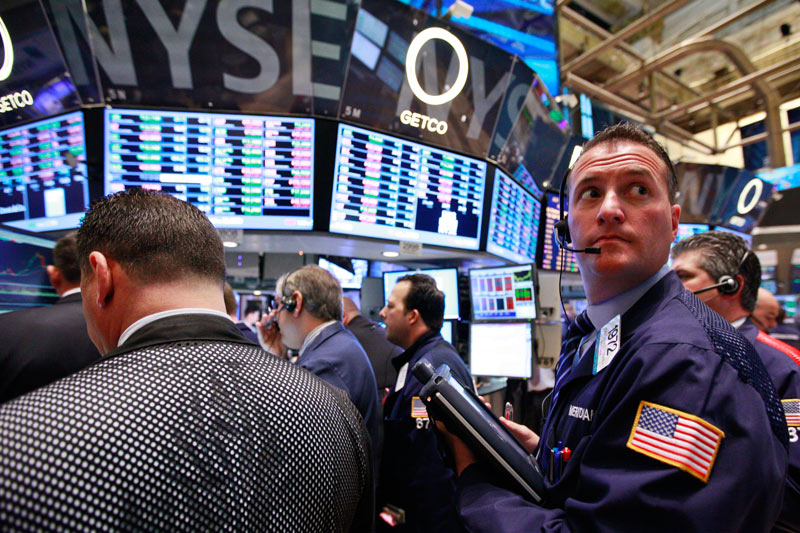* World stock index dips from five-month high
* Argentine peso falls to record low vs the dollar
* Turkish lira pressured as central banker to step down
* Graphic: World FX rates in 2018 http://tmsnrt.rs/2egbfVh (Updates with U.S. market, changes byline, changes dateline to NEW YORK)
By April Joyner
NEW YORK, Aug 30 (Reuters) - Gains in U.S. stocks came to a halt on Thursday as concerns rose among investors that the U.S.-Chinese trade dispute will intensify, while economic turmoil in Turkey and Argentina sent those countries' currencies tumbling.
Stock markets and major government bond yields have risen in recent weeks on hopes that a global trade war can be averted, particularly with the leaders of the United States and Canada optimistic they could reach a new North American Free Trade Agreement (NAFTA) by Friday. sentiment darkened, however, on the prospect that U.S. tariffs on an additional $200 billion worth of Chinese goods may likely take effect in late September. think this is an environment in which, if not for trade news, then we would be trading higher and we have seen that with the bumps in the Mexico trade talks," said Art Hogan, chief market strategist at B. Riley FBR in New York.
Argentina's peso ARS= again tumbled. The country's central bank on Thursday hoisted its benchmark interest rate by 15 percentage points in a bid to control rampant inflation after the peso plummeted to a record low 39 per U.S. dollar. International Monetary Fund, meanwhile, is studying a request from Argentina to speed up disbursement from a $50 billion loan program. lira TRY= was also pressured anew after reports that Turkish central bank deputy governor and ratesetter Erkan Kilimci is leaving the bank. Earlier this month, the country's currency crisis sent the lira plunging to a record low against the U.S. dollar and sparked concerns about emerging markets investments. Treasury yields fell on Thursday morning after a measure of underlying inflation hit the Federal Reserve's 2 percent target for the third time this year. The year-on-year increase in the core PCE - the personal consumption expenditures price index excluding the volatile food and energy components - rose 0.2 percent after edging up 0.1 percent in June. Dow Jones Industrial Average .DJI fell 111.9 points, or 0.43 percent, to 26,012.67, the S&P 500 .SPX lost 8.55 points, or 0.29 percent, to 2,905.49 and the Nasdaq Composite .IXIC dropped 10.86 points, or 0.13 percent, to 8,098.83.
The dollar index .DXY rose 0.26 percent, with the euro EUR= down 0.5 percent to $1.1647.
Benchmark 10-year U.S. Treasury notes US10YT=RR last rose 5/32 in price to yield 2.8658 percent, down from 2.882 percent late on Wednesday.
Earlier, Asian stocks lost gains as signs emerged that tariffs are beginning to hurt the Chinese economy. A Reuters poll showed activity among China's manufacturers probably slowed for the third straight month in August shares followed suit on concerns over the effects on trade tensions between the world's two largest economies, including reduced Chinese demand for exports.
A pan-European stock index .STOXX dropped 0.3 percent, knocking the MSCI world equity index .MIWD00000PUS , which tracks shares in 47 countries, off a five-month high. The MSCI world equity index was last down 0.5 percent.
The Shanghai Composite Index .SSEC closed down 1.1 percent and Hong Kong's Hang Seng .HSI ended 0.9 percent lower.
U.S. crude CLcv1 rose 0.3 percent to $69.73 per barrel and Brent LCOcv1 was last at $77.65, up 0.25 percent on the day, as U.S. crude inventories dropped and Iranian crude shipments fell because of U.S. sanctions. O/R
